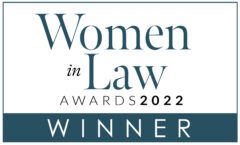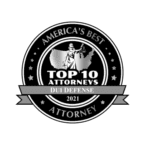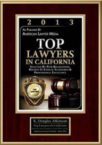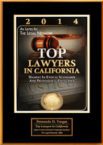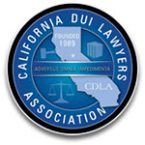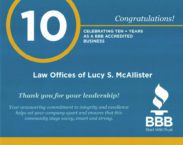A DUI can put your California nursing license and hard work at risk.
You have spent years studying to become a nurse and building your career. However, if you were recently arrested for a DUI, your career may be in jeopardy. Therefore it is imperative to hire an attorney with expertise in criminal and professional licensing law. They can uniquely understand the impact of a DUI on a nurse’s license. This attorney will represent the nurse within both the criminal DUI process and the disclosure to the California Board of Registered Nursing (BRN) which impacts their nursing license.
DUI charges are serious. Most state licensing boards automatically receive notification of criminal proceedings against their license holders. This is a result of online database connections between state and local government agencies. If you are faced with criminal charges as well as revocation or suspension of your professional license, you need to hire an attorney who has experience handling both criminal cases and licensing defense. Lucy S. McAllister is that attorney in California. Her deep expertise working in criminal defense as well as licensing law enables her to be a valuable client representative for clients with a DUI charge.
Often the outcome of your DUI criminal face has significant implications for the outcome your licensing case. Don’t be fooled by criminal attorneys who say they can “help” with your license defense case. Often they have no expertise in this area of administrative law.
Should you tell the BRN about your DUI?
California nurses undergo Live Scan fingerprinting at the time of licensure. When a nurse is arrested and fingerprinted for a DUI, the Department of Justice automatically notifies the BRN of the arrest. While a nurse does not need to notify the BRN of a DUI arrest, a nurse must disclose a DUI conviction to the BRN and must do so within the time frame determined by the BRN. It is critical to have a professional licensing attorney assist in this disclosure process in an effort to minimize both disclosure mistakes and disciplinary repercussions. A professional licensing attorney can also assist a nurse in deciding when, if, and how to disclose a DUI arrest or conviction to your employer.
After a DUI conviction, the Bureau of Registered Nursing (BRN) may file an accusation against your nurse’s license calling for revocation or suspension of your nursing license.
For example, consider the following fictionalized vignette:
Katherine, an RN, residential nurse, doesn’t usually drink but has a few drinks at a dear friend’s wedding. On the way home, she is pulled over and arrested for DUI. A breathalyzer test shows her blood-alcohol concentration (BAC) to be .10. Katherine is terrified that she could lose her nursing license and doesn’t know what to do next. What type of lawyer should Katherine hire? Should she tell the BRN about her arrest? How can Katherine best protect her license?
Plea bargaining a DUI
A “wet reckless” (Vehicle Code 23101 and 23103.5 VC) is a plea bargain from a California DUI. An attorney with expertise in both criminal law and professional licensing law uniquely understands the impact of a DUI on a nurse’s license and will work hard in an effort to get a DUI reduced to a wet reckless. A DUI conviction may result in a license revocation, probation, and heavy fees. A wet reckless conviction may result in a citation and an issued fine from the BRN rather than formal disciplinary action.
It is imperative for a nurse facing a DUI to find a professional licensing and DUI attorney at the earliest stages, before a conviction, to fight for the DUI to be reduced to a wet reckless.
What happens after your DUI arrest becomes a conviction?
A DUI conviction is a violation of the Nurse Practice Act. As stated by the BRN, “The Nursing Practice Act (NPA) is the body of California law that mandates the Board to set out the scope of practice and responsibilities for RNs. The NPA is located in the California Business and Professions Code starting with Section 2700. Regulations which specify the implementation of the law appear in the California Code of Regulations.”
After a DUI conviction has been disclosed to the BRN, the BRN may file an accusation against a nurse’s license calling for revocation or suspension of the license. And note, a state licensing authority has no mandatory duty to remove publicly available information about a licensee’s convictions from its website–including convictions that are eventually dismissed under Penal Code Sec 1203.4 and Sec. 1203.4a.
The BRN Intervention Program
From the BRN’s website, the BRN Intervention Program, formerly called the Diversion Program, “is a voluntary, confidential program for registered nurses whose practice may be impaired due to substance use disorder or mental illness. The goal of the Intervention Program is to protect the public by early identification of impaired registered nurses and by providing these nurses access to appropriate intervention programs and treatment services. Public safety is protected by suspension of practice, when needed, and by careful monitoring of the nurse.”
After a DUI conviction and disclosure to the BRN, a nurse may be contacted by the BRN Intervention Program. A nurse convicted of a DUI should retain a professional licensing attorney before responding to a BRN Intervention Letter. The same is true for enrolling in the BRN Intervention Program. While this program can be beneficial for some, it can have serious implications and consequences for a nurse’s license.
Nursing students with a prior DUI
Nursing students with a prior DUI may be concerned that the BRN will deny an application for licensure. All misdemeanor and felony convictions over $1,000.00 must be reported on an application even if such convictions have been expunged or dismissed.
The BRN considers each application on an individual basis and evaluates when the conviction occurred, its severity, and the details of each case. The BRN will require several types of documentation to be submitted with the application including court documents, arrest reports, evidence of rehabilitation, reference letters, and a letter of explanation.
It is highly recommended that a nursing applicant with a prior DUI consult with a professional licensing attorney before submitting the letter of explanation. No changes can be made to this letter of explanation after it is submitted, and this letter is carefully considered by the BRN.
Questions nurses facing a DUI conviction should ask their attorney:
- What is your expertise in both criminal law and professional licensing law?
- Do you have experience representing nurses in DUI cases?
- How many DUI cases have you won?
- Have you ever had a client’s nursing license revoked for a DUI?
- Any previous success in getting a DUI reduced to a wet reckless?
- What are the outcomes I can expect for my case?
- Will the attorney I hire handle my case personally?
- Do you charge a flat fee or an hourly fee?
We are here to help.
If you are a Registered Nurse who has been arrested for a DUI, it is imperative to enlist the assistance of an experienced licensing attorney immediately. The Law Office of Lucy S. McAllister is ready to assist. We have a background in criminal and professional licensing law and understand the unique legal complexities facing RN’s. Plus, we have the knowledge and experience to craft a comprehensive strategy and are dedicated to navigating your specific case from the DUI through the disclosure and disciplinary process to best defend your professional interests.
The Law Offices of Lucy S. McAllister have successfully represented a wide range of California licensed professionals including nurses, physicians, pharmacists, and mental health practitioners. We are experienced in handling all types of licensing issues. Let us help you protect your professional license, your reputation, and your livelihood.
For additional information or to schedule a consultation on a professional licensing issue, please contact us today at (877) 280-9944 or simply leave us a message in chat.
For Additional Information
California BRN – License Discipline and Convictions


